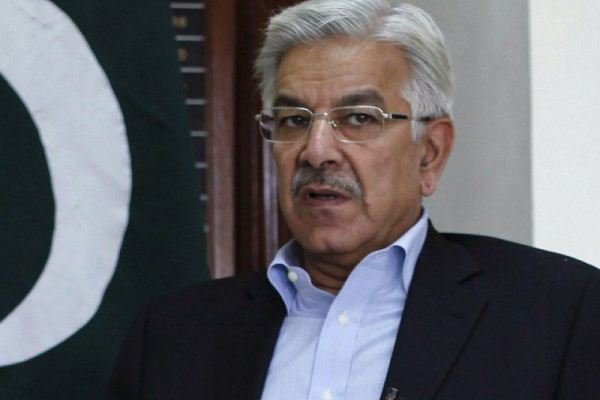Asif said he believes the US-Pakistan relations are now at risk, especially after the tensions heightened and moods turned sour when President Donald Trump warned Islamabad to "do more" against terrorists, to whom, he alleged, the country provides safe havens.
“We do not have any alliance [with the US], this is not how allies behave," the minister told WSJ.
On New Year's Day, US President Donald Trump tweeted that the US had "foolishly" given Pakistan over $33 billion in aid over the past 15 years, adding that Islamabad gives "safe havens to the terrorists we hunt in Afghanistan, with little help".
Later, on Friday, the US announced it was suspending aid worth $255 million as well as the transfer of military equipment and security-related funds to Islamabad.
"Today, we can confirm that we are suspending security assistance only to Pakistan at this time," Heather Nauert — the spokesperson for the Department of State — disclosed in a press briefing.
The suspension of security assistance to Islamabad came after Washington accused Pakistan of playing a “double game” on fighting terrorism and warned Islamabad it would have to do more if it wanted to maintain aid without interruptions.
The same day, Major General Asif Ghafoor — the Director-General of Inter-Services Public Relations (ISPR) — underscored the suspension would impact the bilateral security cooperation and regional peace.
The “suspension of security assistance will not affect Pakistan’s resolve to fight terrorism; however, it, for sure, will have an impact on Pakistan-US security cooperation and efforts towards regional peace,” the Army spokesman had commented.
Foreign Minister Asif said that the nation had erred when it became a party in the 2001 US campaign against Afghanistan, calling it a “huge mistake”.
That decision, more than a decade ago, brought about the terrorist counteraction that seeped into Pakistan, creating a problem way bigger than could have been anticipated.
Still, the US continues to assert that Pakistan harbours terrorists, asking it to "clamp down on sanctuaries used by the two militant groups to plan attacks, collect weapons, and allow fighters to recuperate".
But Islamabad, on the other hand, reiterates its woes, stating that the US has overlooked the Pakistan Army's sacrifices — both in terms of personnel and cost — and doesn't credit its effort in pushing back Al Qaeda.
Further, military's spokesperson Maj. Gen. Ghafoor said, “We have done enough and we cannot do any more,” indicating that Pakistani forces are already fully engaged in border protection and fighting other extremist groups.

























Your Comment